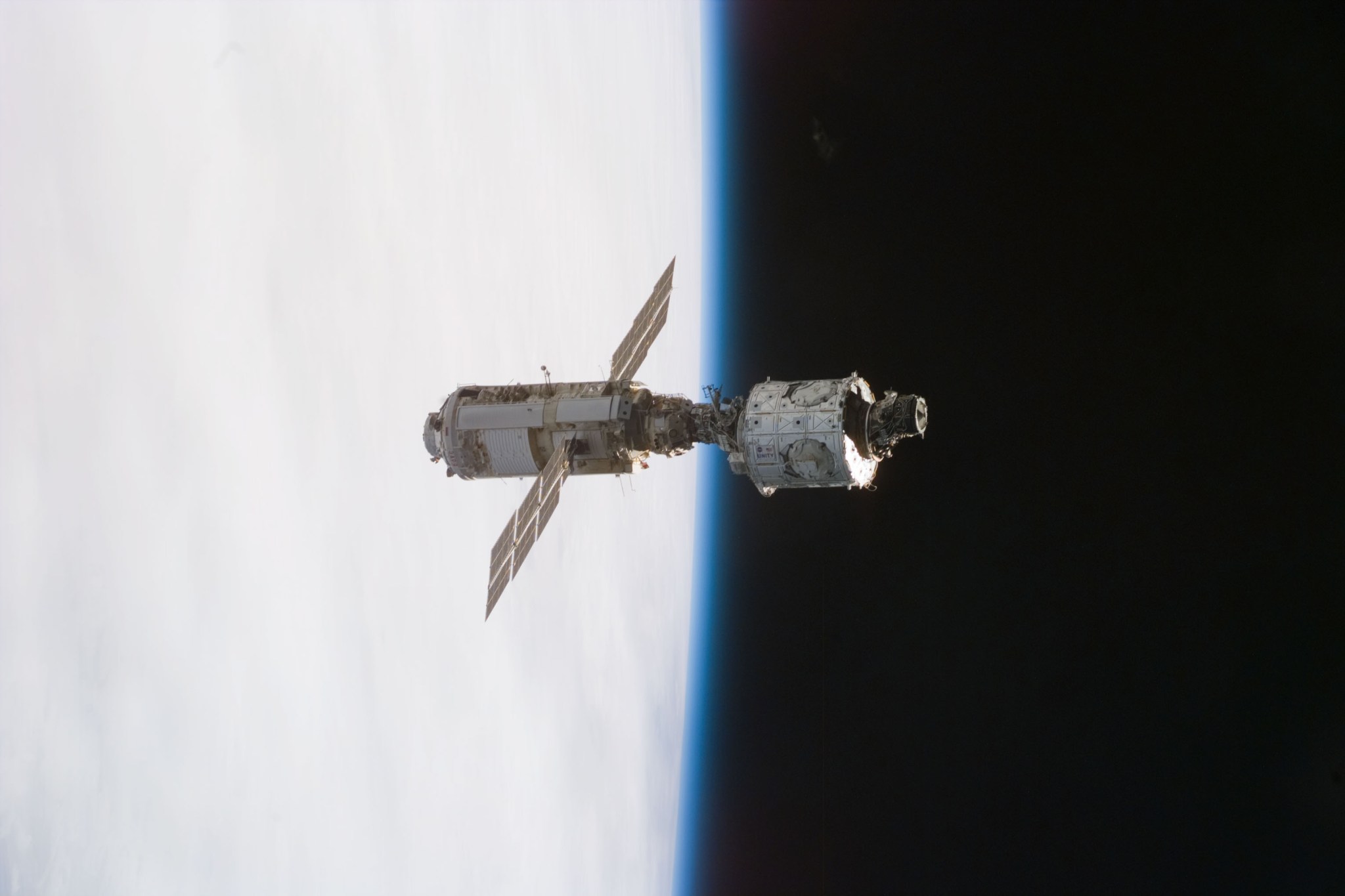25 Years Ago: The First Pieces of the International Space Station

The mated Russian-built Zarya (left) and U.S.-built Unity modules are backdropped against the blackness of space and Earth’s horizon shortly after leaving Endeavour’s cargo bay on Dec. 13, 1998. A few days earlier, on Dec. 6, 1998, the space shuttle Endeavour, mission STS-88, launched from NASA’s Kennedy Space Center in Florida carrying the Unity connecting module and two pressurized mating adapters. The same day, the STS-88 crew captured the Russian Zarya module, launched Nov. 20, and mated it with the Unity node. Unity was the first piece of the International Space Station provided by the United States.
The components in the current space station were built in various countries around the world, with each piece performing once connected in space by complex robotics systems and humans in spacesuits—a testament to teamwork and cultural coordination.
Learn more about the space station, including its assembly.
Image Credit: NASA
First published at NASA.gov




